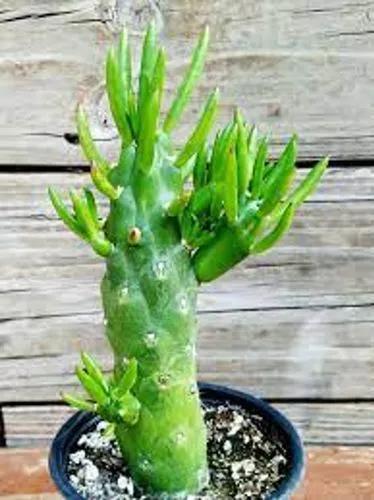Hylocereus costaricensis, the Costa Rican pitahaya or Costa Rica nightblooming cactus, is a cactus species native to Costa Rica and Nicaragua. The species is grown commercially for its pitahaya fruit, but is also an impressive ornamental vine.
Hylocereus costaricensis Care
Hylocereus costaricensis
Other names: Costa Rica Nightblooming Cactus



Hylocereus costaricensis is epiphytic cactus endemic to Mexico with long shoots that produce very large, yellowish white flowers followed by large, pink fruits with watery red flesh, commonly known and marketed as Red Pitaya or Red Dragon Fruit. The fruits are popular mainly because of their strange shape and color. They are pleasant and mildly sweet but rather bland. The species is native to Costa Rica and Nicaragua, although its natural range is hard to determine because it has been cultivated so widely. It occurs in dry or deciduous coastal forests, at elevations of 0–1,400 m (0–4,593 ft) above sea level. It is named after Costa Rica where it was first discovered
How to Care for the Plant

Water

Because this plant is a cactus plant, it is important to make sure that you are watering it properly. Only water the plant when the top of the soil is dry to the touch, and do not allow the plant to sit in water. The soil needs to be moist, not soaked.

Fertilizer

To ensure that the dragon fruit is growing properly, give it some fertilizer every month during the active growing season. During the cold winter months, you will want to stop feeding your plant for a few months.

Sunlight

The base of the plant can see a little shade, but the tips of the plant require full sun to ensure that the plant blooms properly. If too much shade is given to the plant, the fruit will not do well.

Soil

This plant is able to grow in any soil that is well draining, but it prefers to grow in soil that is slightly acidic with a pH level that is between six and seven. Sandy soil is the best option for this plant; if it is not available, just ensure that it is well draining soil.

Temperature

Dragon fruit will not grow in cold climates, so make sure that the temperature is above 40°F to prevent damage from occurring to the plant. For optimal growth, the temperature needs to be between 65 and 80°F.

Container

This plant can be grown in a container. Choose a pot with enough drainage holes.

Popularity

32 people already have this plant 12 people have added this plant to their wishlists
Discover more plants with the list below
Popular articles






